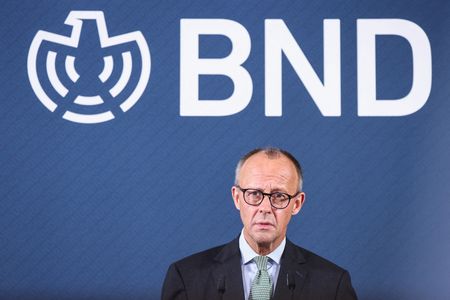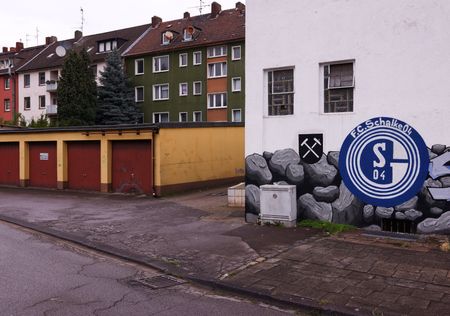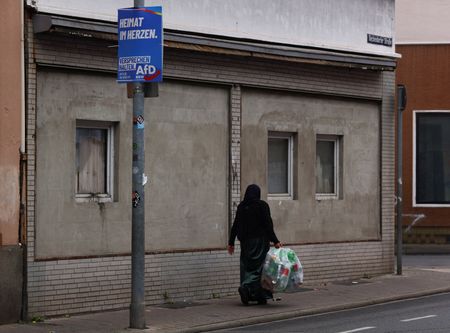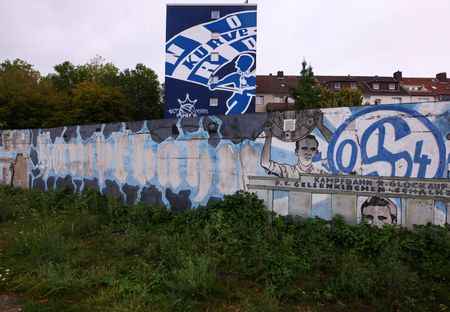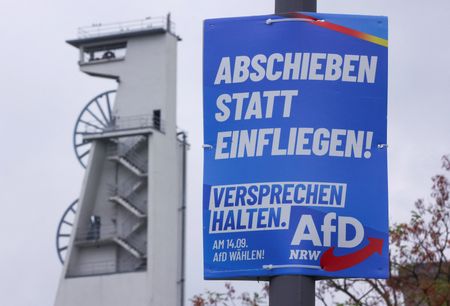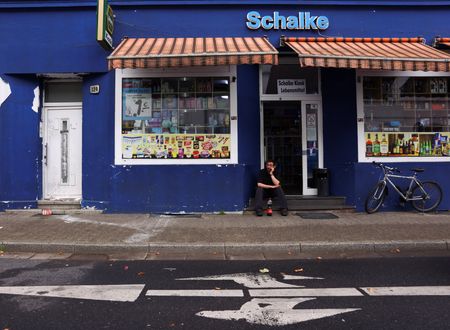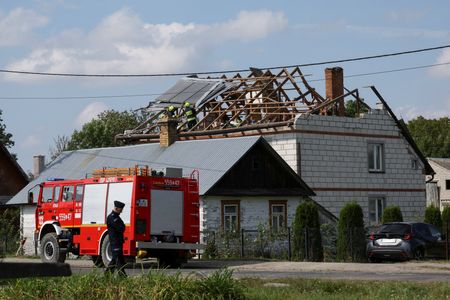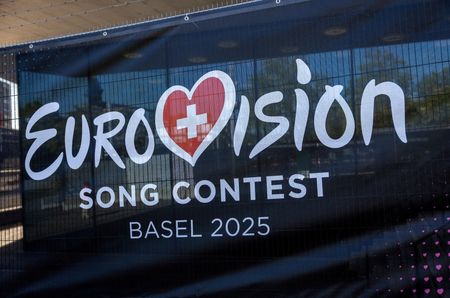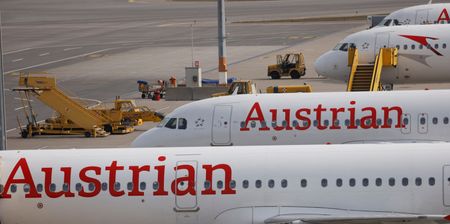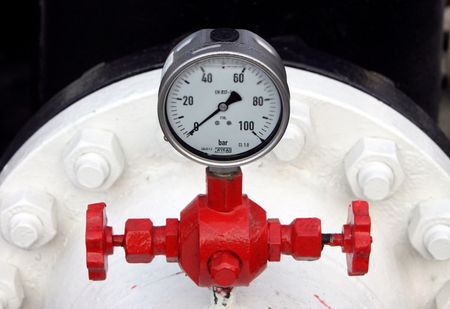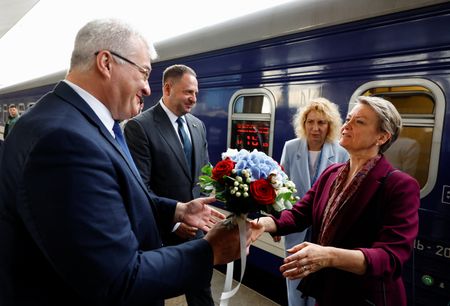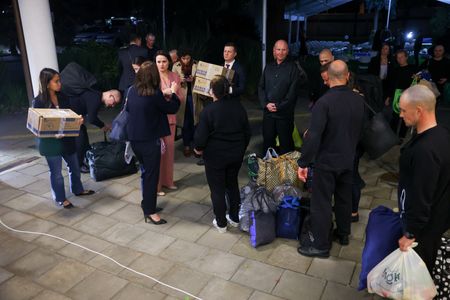By Petra Wischgoll and Thomas Escritt
GELSENKIRCHEN, Germany (Reuters) -Friedrich Merz promised to cut the far right down to size. This Sunday, he faces his first big electoral test since becoming German chancellor, and the nativist Alternative for Germany is scoring its best-ever polling results.
Local elections in North Rhine-Westphalia, Germany’s most populous state, could show whether the AfD can translate its successes in eastern Germany to the urban, more Catholic west, where it has always been weaker.
Almost a quarter of Germany’s 81 million people live in the region, whose ethnically diverse mix of post-industrial towns, buzzing university metropolises, and agricultural uplands makes it a bellwether for Germany as a whole.
The conservatives, with 35% support statewide according to an August 22 INSA poll, are likely to remain dominant, but the AfD, with 16% is at twice its level of five years ago, and its party’s mayoral candidates have a chance of reaching runoff votes two weeks later.
WEAK ECONOMY, RISING UNEMPLOYMENT PRESSURE COALITION
Both Merz’s conservatives and their Social Democrat national coalition partners are under pressure four months after Merz took office, with the economy sluggish, unemployment rising, and polls showing voters are restive about immigration, the AfD’s signature theme.
“The impressions I’m getting are weighing on me so much that I can hardly sleep anymore,” said Frank Schoenberger, a lawyer and conservative local politician of decades’ standing in the picturesque Rhineland town of Leverkusen, describing ill-tempered voters who no longer wish to engage.
“People say, ‘no, leave me alone’ or ‘I’ll be voting AfD anyway,'” he said.
Since the federal election in February, the AfD has started topping some national opinion polls, though others show Merz’s conservatives still in front.
SPD FACES STIFF CHALLENGE
In Gelsenkirchen, a former mining city in the Ruhr valley where old pit elevators loom over boarded-up shops, it is the Social Democratic Party (SPD) that faces a stiff challenge.
“All the shops are closing, nobody has any money, unemployment is so high,” said Ute Hollmann, a voter passing an SPD campaign stall.
While the AfD is unlikely to win any mayoralties, merely getting into second rounds would be a breakthrough, suggesting it will be even harder nationally to form governing majorities without the AfD, which all others say they will never work with.
Merz has cut a more assured figure on the international stage than his Social Democrat predecessor Olaf Scholz, playing a central role in efforts to rally European countries to form a united front in defence of Ukraine as U.S. President Donald Trump wavers in his support. But he remains hostage to promises during the campaign to lead a dramatic shift on migration.
The AfD’s status as an insurgent party gives it a freer hand.
“Our voters love our clear language,” said Enxhi Seli-Zacharias, an AfD member of Gelsenkirchen council. “They don’t just understand us: they believe we’ll keep our word.”
While established parties run stalls in market squares, the AfD’s ground presence is more limited, its online messaging focused on national issues, from nuclear power to migration, over which their councillors have no say.
(Reporting by Petra Wischgoll, Thomas Escritt, Leon Kuegeler, Thilo Schmuelgen; writing by Thomas Escritt; editing by Matthias Williams and Rod Nickel)

